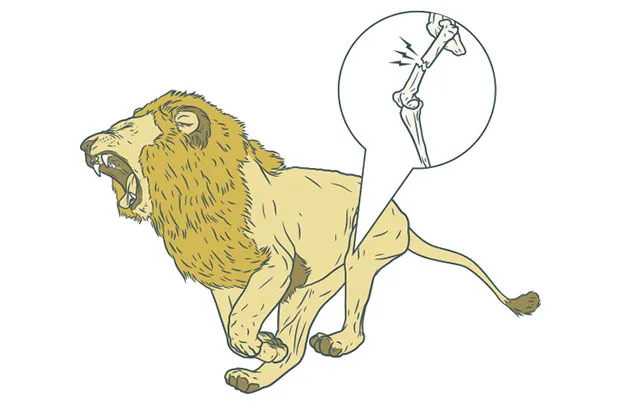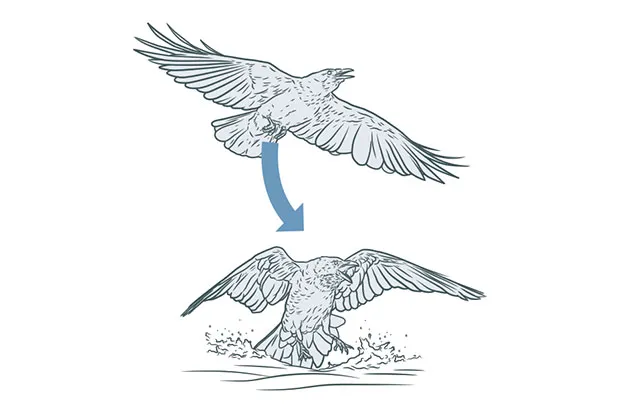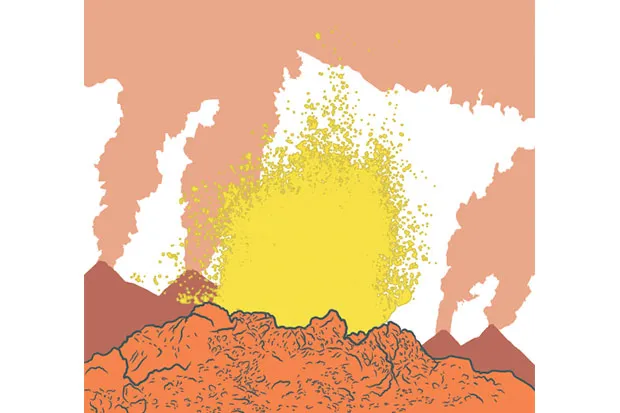1
Gravity

If we assume that the density of the Earth stays the same, then doubling the radius increases the planet's mass eight-fold. Surface gravity is now doubled, so most plants and trees promptly fall over. Any animal dog-sized or bigger can't run without breaking a leg, so large predators can't move fast enough to catch prey.
2
Day length

Angular momentum is proportional to mass x radius squared. As angular momentum is conserved, the planet now rotates 32 times slower. A day lasts over a month! This creates huge temperature imbalances between the light and dark side of the planet, powering wind storms that flatten all buildings.
3
Air pressure

If the atmosphere doubles in size too, then air pressure is doubled. This is still breathable and the extra oxygen helps to offset the greater effort needed to pump blood up to your brain. The thicker air actually makes flying easier for birds, although most need to land on water to cushion the impact caused by the stronger gravity.
4
Plate tectonics

The greater volume of radioactive elements in the mantle means hotter magma. Even though the crust is thicker, hundreds of new volcanoes erupt, pumping more CO2 into the atmosphere and creating a runaway greenhouse effect. This leads to the biggest extinction event Earth has ever seen.
Subscribe to BBC Focus magazine for fascinating new Q&As every month and follow @sciencefocusQA on Twitter for your daily dose of fun facts.
